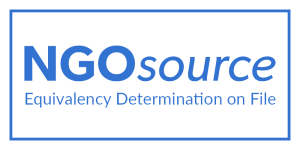Using evidence to improve lives in Uganda
ACRES looked at similar misoprostol distribution programs worldwide but realized the value of locality. They spent time understanding and interpreting local norms, beliefs, and power dynamics, allowing them to reflect how this drug would impact the women who needed it, broader community members who would now have more access, and the government program’s implementation of […]
Evidence for informing health policy development in Low-income Countries (LICs): perspectives of policy actors in Uganda
Although there is a general agreement on the benefits of evidence informed health policy development given resource constraints especially in Low-Income Countries (LICs), the definition of what evidence is, and what evidence is suitable to guide decision-making is still unclear. Our study is contributing to filling this knowledge gap. We aimed to explore health policy […]
Task shifting in maternal and child health care: An evidence brief for Uganda
There is a shortage and maldistribution of medically trained health professionals to deliver cost-effective maternal and child health (MCH) services. Hence, cost-effective MCH services are not available to over half the population of Uganda and progress toward the Millennium Development Goals for MCH is slow. Optimizing the roles of less specialized health workers (“task shifting”) […]
Embedding rapid reviews in health policy and systems decision-making: Impacts and lessons learned from four low- and middle-income countries
Demand for rapid evidence-based syntheses to inform health policy and systems decision-making has increased worldwide, including in low- and middle-income countries (LMICs). To promote use of rapid syntheses in LMICs, the WHO’s Alliance for Health Policy and Systems Research (AHPSR) created the Embedding Rapid Reviews in Health Systems Decision-Making (ERA) Initiative. Following a call for […]
Feasibility of a rapid response mechanism to meet policymakers’ urgent needs for research evidence about health systems in a low income country: a case study
Despite the recognition of the importance of evidence-informed health policy and practice, there are still barriers to translating research findings into policy and practice. The present study aimed to establish the feasibility of a rapid response mechanism, a knowledge translation strategy designed to meet policymakers’ urgent needs for evidence about health systems in a low […]
Evaluation evidence for public procurement policymaking in Uganda
This policy brief discusses findings from a case study conducted to illustrate how evidence from an evaluation informed decision- and policymaking of a major reform, the amendment of the Public Procurement and Disposal of Assets Act in Uganda. The evaluation was managed by the Office of the Prime Minister (OPM) and the Public Procurement and […]
Pre-diagnostic drop out of presumptive TB patients and its associated factors at Bugembe Health Centre IV in Jinja, Uganda
Drop out of presumptive TB individuals before making a final diagnosis poses a danger to the individual and their community. We aimed to determine the proportion of these presumptive TB drop outs and their associated factors in Bugembe Health Centre, Jinja, Uganda. Read More: Pre-diagnostic drop out of presumptive TB patients and its associated factors […]
Rapidly responding to policy queries with evidence: Learning from Rapid Response Services in Uganda
The Rapid Response Service (RRS) is a knowledge translation service in Uganda that responds to a decision maker’s needs for evidence with synthesised relevant evidence, contextualised and summarised in an accessible package. The RRS was set up in 2010 at the Regional East African Health Policy Initiative, Uganda node, at Makerere University, and has supported […]
Paper 1: Demand-driven rapid reviews for health policy and systems decision-making: lessons from Lebanon, Ethiopia, and South Africa on researchers and policymakers’ experiences
Rapid reviews have emerged as an approach to provide contextualized evidence in a timely and efficient manner. Three rapid review centers were established in Ethiopia, Lebanon, and South Africa through the Alliance for Health Policy and Systems Research, World Health Organization, to stimulate demand, engage policymakers, and produce rapid reviews to support health policy and […]
Embedding rapid reviews in health policy and systems decision-making: Impacts and lessons learned from four low- and middle-income countries
Demand for rapid evidence-based syntheses to inform health policy and systems decision-making has increased worldwide, including in low- and middle-income countries (LMICs). To promote use of rapid syntheses in LMICs, the WHO’s Alliance for Health Policy and Systems Research (AHPSR) created the Embedding Rapid Reviews in Health Systems Decision-Making (ERA) Initiative. Following a call for […]


